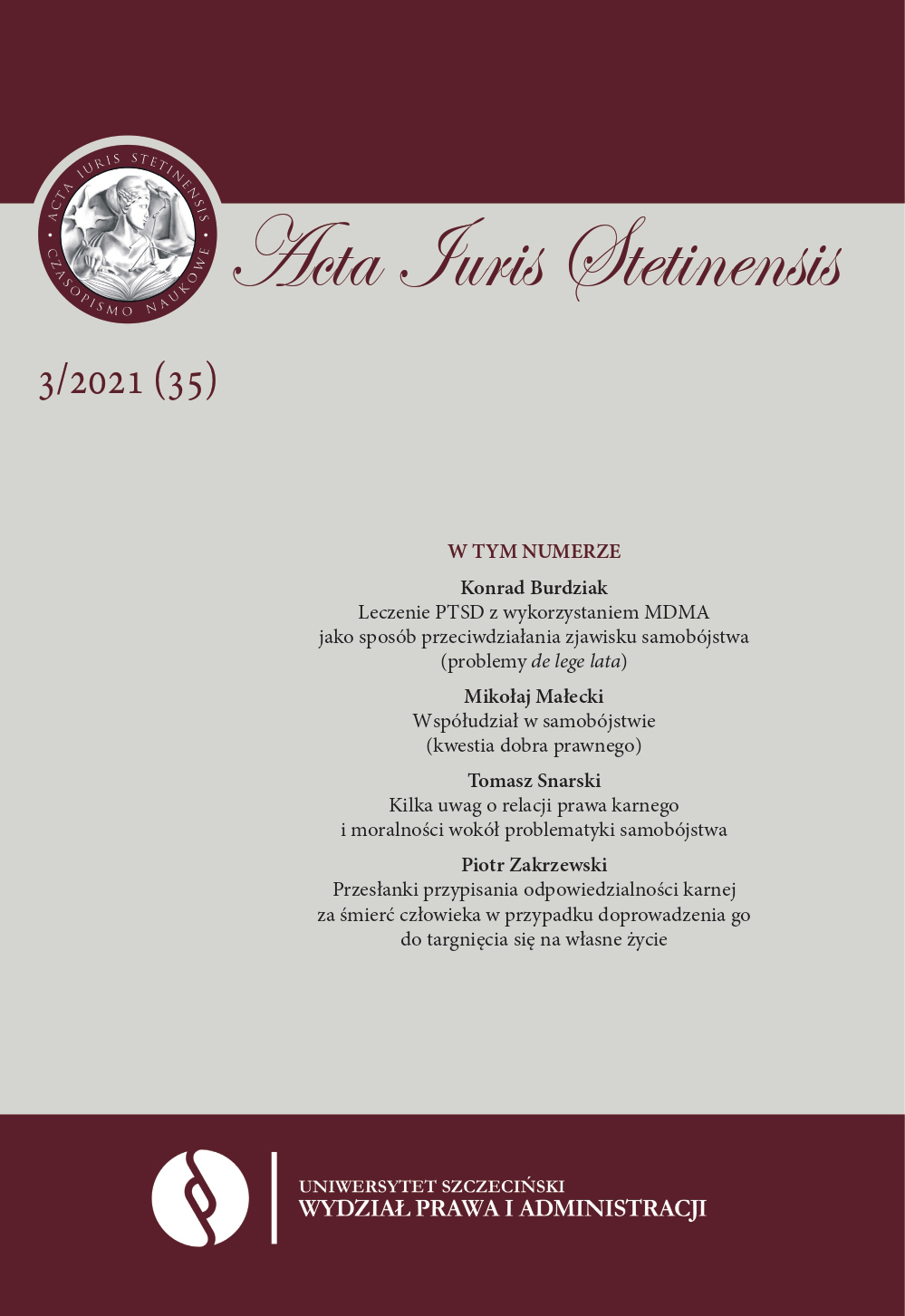Usługa pobrania i przechowywania komórek macierzystych a zwolnienie z VAT – glosa do wyroku Naczelnego Sądu Administracyjnego z dnia 15 marca 2018 roku, I FSK 750/16
Stem cells collection and storage and VAT exemption – commentary to the judgment of the Supreme Administrative Court of 15 March 2018, I FSK 750/16
Author(s): Marzena ŚwistakSubject(s): Politics / Political Sciences, Politics, Law, Constitution, Jurisprudence, Economic policy, Welfare systems, Fiscal Politics / Budgeting, Administrative Law
Published by: Wydawnictwo Naukowe Uniwersytetu Szczecińskiego
Keywords: prevention; medical care; stem cells; tax exemption; VAT
Summary/Abstract: The health of EU citizens is undoubtedly one of political and social priorities. Therefore, for the benefit of the development of prevention and from the point of view of its innovativeness and the scope of its impact, it is essential to create a preferential legal and organisational framework (also in the form of tax preferences). Methods of prevention such as storage (banking) of stem cells, either from cord blood of new-borns or from peripheral blood of adults, appear to be a desirable tool that offers the possibility of preventing various types of diseases which are difficult to detect using traditional diagnostic methods. Intensification of preventive activity was to be facilitated by the introduction in the VAT Act of an exemption from taxation for medical entities that carry our preventive actions. However, judicial decisions of national courts, in particular the judgment of the Supreme Administrative Court of 15 March 2018, I FSK 750/16, have revealed numerous ambiguities, and thus discrepancies, which in fact may constitute a real barrier to the progress of innovative preventive methods. The purpose of this study is to propose a new, broader path of analysis of the issue and to formulate de lege ferenda postulates for possible directions of legislative actions. The court’s position on the necessity to apply a restrictive interpretation to tax exemptions is shared. However, at the level of further argumentation presented in the judgment discussed, its superficiality and internal contradiction is demonstrated. It is pointed out that following the pro-EU interpretation must not entail the crossing of normative borders of domestic provisions (including the change of the criterion of purposefulness in the premises of tax exemptions into the criterion of causal relation). The author demonstrates the negative impact of the absence of a definition of concepts such as “medical care” or “prevention” in the statute. As a de lege ferenda postulate, it is suggested that either these concepts be specified or that relevant references to regulations of lex specialis nature be included in the tax statute. Irrespective of the above, it also seems necessary to undertake legislative actions to remove the irregularities in specifying interconceptual relations (e.g. separation of “prevention” and activities consisting in “preservation of health”). The research method applied in the study largely involves an analysis of the law in force.
Journal: Acta Iuris Stetinensis
- Issue Year: 2021
- Issue No: 35 (3)
- Page Range: 137-149
- Page Count: 13
- Language: Polish

